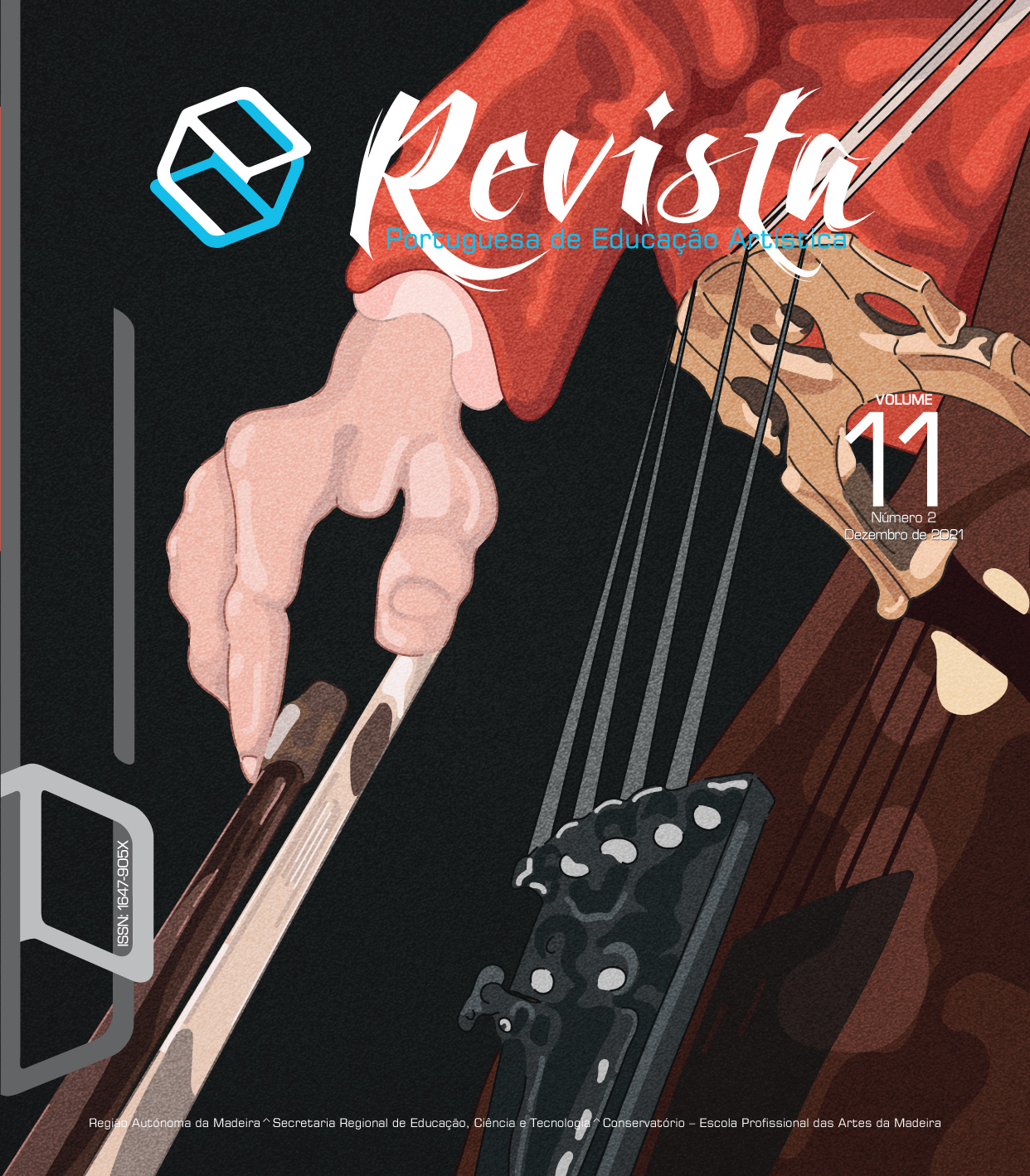Vol. 11 No. 2 (2021): Revista Portuguesa de Educação Artística

The current issue of the Revista Portuguesa de Educação Artística (RPEA) brings together a set of articles from the Atlantic axis, which demonstrate the vitality of research in the field of arts and education in countries such as Brazil, Angola, Portugal and the United Kingdom.
The first article brings back to the debate the comparison between the articulated and supplementary regimes in the specialized artistic teaching of music in Portugal, through the accomplishment of an exploratory study that starts from the perceptions of students of the Conservatório – Escola Profissional das Artes da Madeira.
This is followed by the article ““Dixiland”: Domingos Vilaça and the First Commercial Jazz Recorded by Portuguese Musicians”, where the researcher and professor José Manuel Amaro de Menezes has as its main purpose to understand how a classically trained musician approached musically and creatively the task of recording a jazz record.
After two articles in the area of music, the work by Nádia de Abreu Bengo follows, with the title “Supervised Professional Internship: Perception of the Theater Intern”. This is a qualitative study, based on the Research-Action methodology, which intended to identify good supervisory practices in the theater field.
The following article returns to music and relations between Portugal and Great Britain, around the machete musical instrument. Researcher and ukulele and guitar player Samantha Muir brings us a British perspective on the machete from Madeira Island, carrying out a systematization of the literature on this instrument.
From Brazil, comes the article “Intertextuality in Imagery: An Approach to Teaching Art”, by researchers linked to the State University of Santa Catarina, who present research carried out in the field at a public school in the interior of the Island of Santa Catarina , in southern Brazil, in 2018, which takes the linguistic phenomenon of intertextuality as a theoretical and methodological framework.
Finally, the article “The Fado Musical Genre: An Essay in its Trajectory, Gaps, Mutations and Sharing from the End of the Salazar Dictatorship to the 21st Century” brings us a Brazilian perspective on fado, where it is presented, in the form of an essay , a reflection on the adaptation of fado to contemporaneity.
The current RPEA ends with a review by Teresa Eça on the edition of Italian opera librettos in Chinese, edited by Stella Guo Chen and Carlo Alberto Petruzzi.



